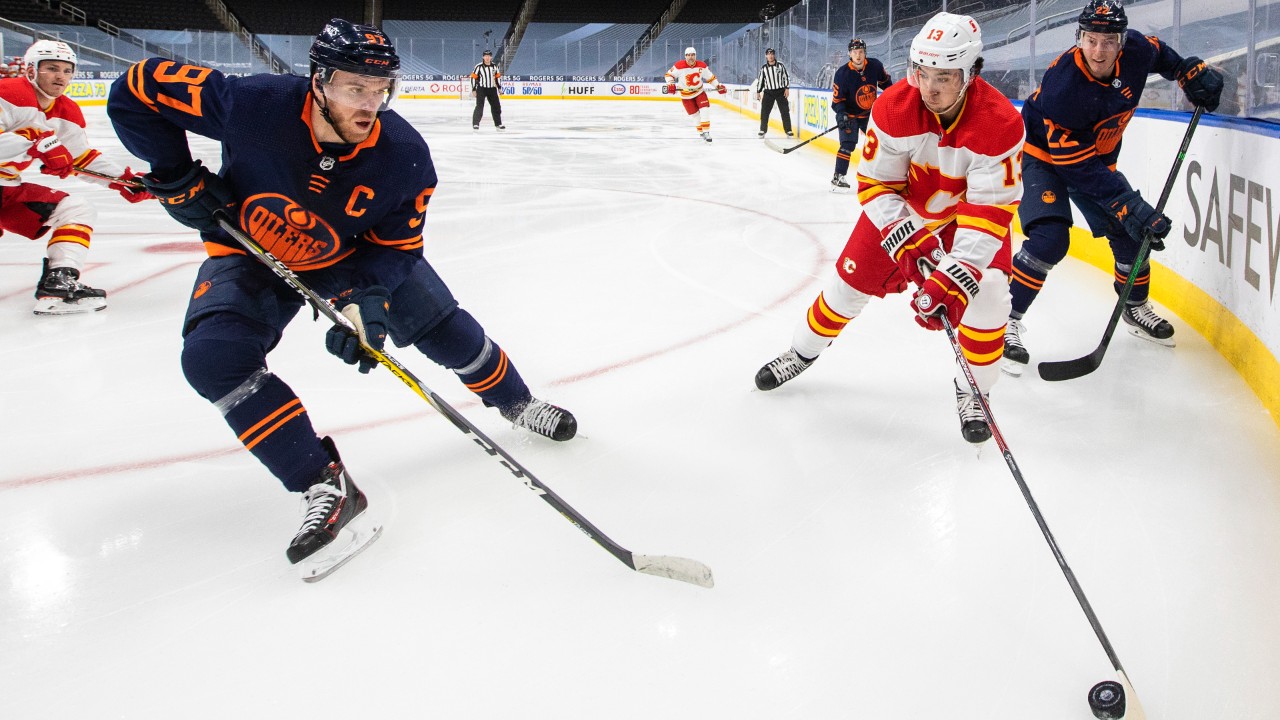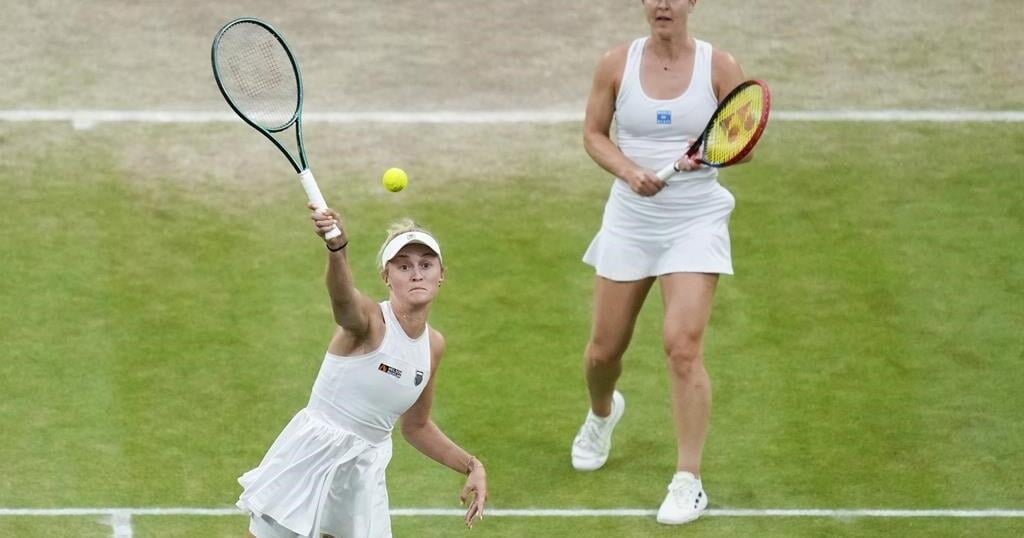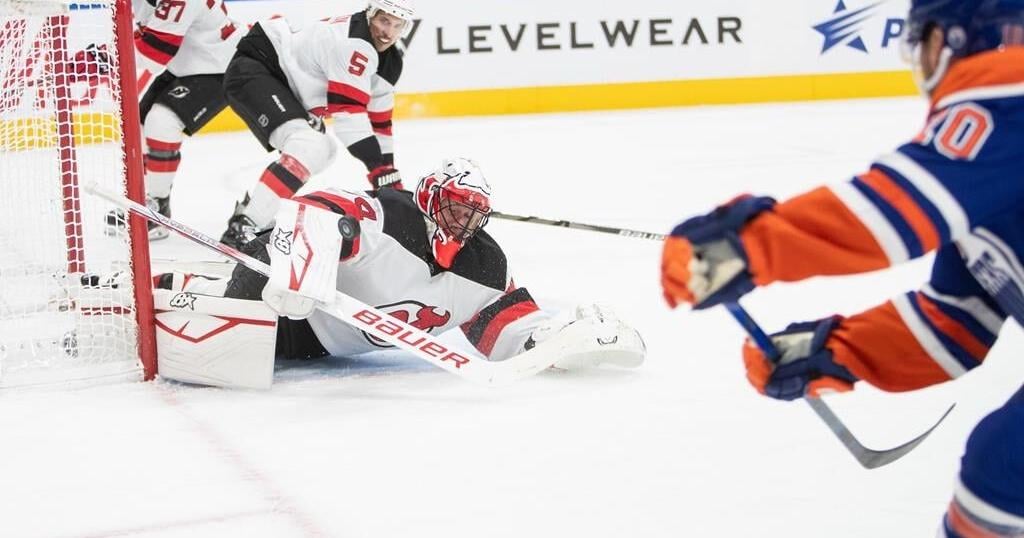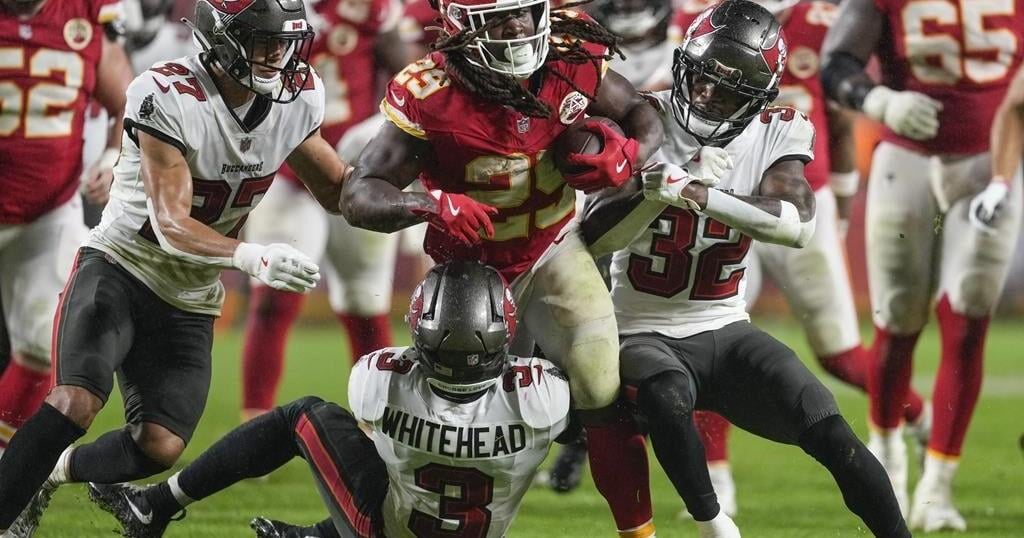Identifying the issues was the easy part.
The real challenge for the St. Louis Blues is finding a way to try to correct them.
Despite being in a one-shot game that required overtime in a series opener that closed with a seeing-eye wrister from Colorado Avalanche defenceman Josh Manson, the Blues do not sound like a defeated or deflated bunch heading into Game 2 on Thursday at Ball Arena.
They also sound like a realistic one, knowing there’s clearly another level they’ll need to reach in order to even the best-of-seven series before it shifts to Missouri against an Avalanche club that outshot (54-25) and out-chanced (43-13, including 18-5 of the high-danger variety according to Natural Stat Trick) them handily.
“I liked our goaltending, that’s about it,” Blues forward Brayden Schenn told reporters on Wednesday. “From a team perspective, we’ve got to be a whole lot better. The skaters out there know that we’ve got to be a whole lot better in front of him. We know he’s capable of it and we’re going to need good goaltending throughout the series.”
Blues goalie Jordan Binnington was the story of Game 1, even in a losing cause, with some folks believing he was channelling his inner 2019 — which ended with him raising the Stanley Cup over his head after a Game 7 victory over the Boston Bruins.
But the truth is that while Binnington was excellent during that run, he wasn’t asked to face the volume or quality of shots that came his way on Tuesday night often, if at all.
With 51 saves, Binnington did his part to keep his team in the game, despite an onslaught that included 13 shots on goal in just over eight minutes of action in overtime (compared to zero for the Blues).
Binnington was mostly calm and composed in net, tracking the puck well and squaring up many rebounds, but his athletic ability was also on display — especially on a sprawling glove save on Erik Johnson.
The performance was even more impressive when you consider Binnington lost his starting job to Ville Husso this season and didn’t appear in the first three games of the opening-round matchup with the Minnesota Wild before coming out of the bullpen.
“This is where you want to be, out there competing,” Binnington told reporters. “We know we’re going to have to chip away all series long. We’re going to have to respond in Game 2.
“Every game is different, right? That’s the fun part about it. Just kind of adapting and seeing what’s coming at you. You’ve got to be prepared for what is coming at you.”
As for the Avalanche, if you thought head coach Jared Bednar was going to be concerned about the fact Nathan MacKinnon and Cale Makar were held off the scoresheet, think again.
Nor did he have reason to be, since MacKinnon led all players with eight shots on goal and 12 shot attempts and Makar had four shots on goal and eight shot attempts.
The scoring chances were there, even though Blues captain Ryan O’Reilly (who scored a goal for a fifth consecutive game) was able to help contain two of those key play drivers, relatively speaking of course.
“They were on for the one goal (by Valeri Nichushkin that tied the game) and I thought they played great,” Bednar told reporters after Tuesday’s game. “They were dangerous, they defended hard and they did everything right. When you’re talking about your stars needing to drive the bus, it’s not just getting on the scoresheet every night. They’re playing against a really good line and sometimes a wash is good enough. You’re not going to win that matchup every night because you’re playing against the other team’s best players.
“But I thought they were good. They played the right way, they spent a lot of time in the offensive zone. They couldn’t get the puck to go (in), so they didn’t get on the sheet, but everyone on our team is watching those guys and how they play and how they compete, with the detail to their game. When it’s good, everyone else follows.”
Blues head coach Craig Berube is considering going to a more traditional lineup that features 12 forwards and six defencemen after going with 11 forwards and 7 D-men for the past four games.
However, Berube isn’t planning to overhaul the game plan.
It was abundantly clear that he’ll be looking for much better execution, specifically when you consider the decisive edge the Avalanche had during the second period and overtime.
“There are always adjustments and things that we can do…but it boils down to wanting to make a play and using your feet a little bit more and just a little bit more composure,” Berube told reporters. “You’ve got to bump guys, you’ve got to have contact on them. Otherwise, they’re going to skate right through you. That’s the way they play. They don’t rest, they just go.
“It’s not running around and running out of position, it’s just contact when it’s there. If you don’t compete, you’re not going to give yourself a chance. I don’t care who you are. And we weren’t competitive enough.”
The Avalanche were going for much of the night, coming at the Blues in waves, showcasing that speed and explosiveness that left St. Louis on its heels for wide stretches.
Berube explained that part of that can be remedied by playing a bit more of an aggressive style, not by sitting back and feeding the transition game.
“If you don’t play in the offensive zone against them, you don’t possess pucks and you don’t make them defend, you’re going to be in your own end like we were (Tuesday) night,” said Berube. “We have to play more as a team. We were too spread out and we weren’t connected. When we are connected and we’re playing as a team, we’re a pretty damn good team. We’ve shown that. We’re a hard offensive team. We forecheck hard, we possess pucks in the offensive zone and we compete on them. That’s what makes us a good team and that’s what I see we need to do.”
You can be sure that one of the adjustments the Blues will attempt to employ is to complete more tape-to-tape passes rather than just dumping the puck into the neutral zone to try and stem the tide.
“We chucked too many pucks away and flipped too many pucks out. And then you kind of let them keep on coming at you,” said Schenn. “One way to defend is to make better puck plays. Then you have the puck more and you make them defend. I don’t think we did enough of that, not at all. We know we’ve got to be a whole lot better with the puck. They come fast at you, they don’t give you much time and space. But that means the players out there have to support one another and that gives you an option to make a play.”
Source link
Related



























